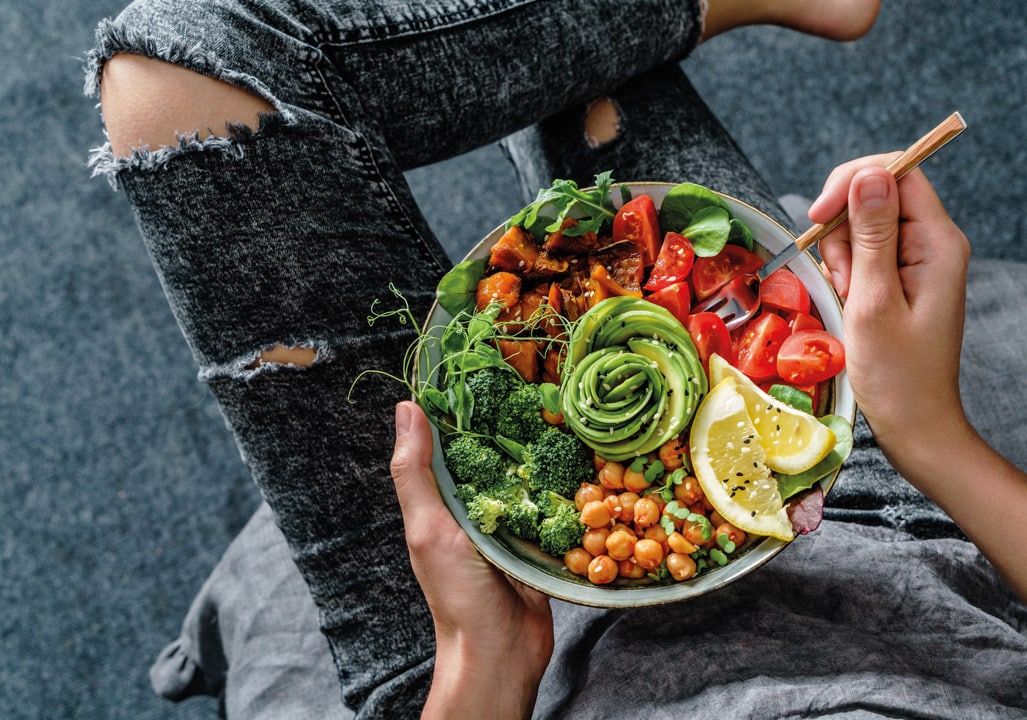
The 4 key pillars to a healthy lifestyle
Feel great, look great: a kinder approach to a balanced and sustainable lifestyle. By Jon Winter
As the world begins to reawaken, we start to dream of a life post-lockdown. Free to enjoy warmer evenings, holidays by the ocean, and picnics in the park. For many this may bring added pressure to look and feel our best, leading to quick-fix diets and rigorous, unsustainable exercise regimes that cause additional stress.
The good news is there’s a kinder and more sustainable approach to being healthy and happy while looking and feeling great that doesn’t involve a diet!
Whilst the following is not a prescriptive diet, implementing this simple framework on a daily basis will certainly impact the food choices, overall nutrition, and wellbeing within your life.
The four key pillars to a healthy lifestyle:
1. A good night's sleep
The foundation of a healthy lifestyle is, first and foremost, good quality sleep. This is key for helping our bodies regulate, thus reducing stress and promoting sustained energy throughout the day.
The Issue: Science suggests that those of us that sleep five and a half hours per night or less may experience higher hunger levels and make poorer food choices than those who sleep eight hours. They also tend to consume up to 22% more calories per day, equal to more than a day of extra calories each week.
The Solution: Try these tips and techniques for a better night's sleep:
- Avoid engaging with emails and social media or using mobile phones, tablets and other devices for two hours before bed. This allows us to relax and reduces our exposure to both stress and blue light, enabling a natural sleep state to occur.
- Daytime walks. Natural light exposure during the day can help our bodies follow their natural circadian rhythms.
- Set sleep and wake-up times. Consistency helps our bodies to adapt to a natural pattern.
2. Reduce stress
Stress can play both a positive and negative role in our health. Whilst a small amount of short-term stress can facilitate a heightened sense of performance and awareness, longer term it can be very detrimental.
The Issue: The impact of long-term or increased stress levels in our lives places our bodies in an ongoing ‘fight-or-flight’ mode.
In turn, we may find ourselves seeking higher carbohydrate and sugary comfort foods, needing to consume more and experiencing reduced sleep quality. We may also experience lower moods and signs of burn-out or fatigue.
The Solution: Try these tips and techniques to reduce stress levels and promote natural happiness:
- Practice gratitude daily. With a family member, friend or colleague, start each day by listing three things you’re grateful for. You’ll be amazed how it impacts your outlook.
- Socialise more. Whether it’s via a video call, a meeting in the park or simply chatting with the barista whilst grabbing a morning coffee, the simple act of meeting and talking with other people can naturally boost our mindset and reduce anxiety and stress levels.
- Daily routine. Whether it's five minutes or one hour, start and end your day with a practice that allows you to greet the day with positivity. Examples include yoga, breathing exercises, journaling and walking.
3. A healthy diet
Whilst food is incomparably more than ‘fuel’ in our modern day-to-day lives, at its most primitive function, it serves to provide us with the sustenance and energy we need to survive.


The Issue: With more demands on our time and greater availability of low[1]cost convenient food options (such as pre-made meals, cereals, confectionery, breakfast muffins, etc), it’s not surprising we opt for the easy choices. However, processed and ultra-processed foods are more difficult for our bodies to digest, containing many unwanted ingredients that may have an adverse effect on our mood, the decisions we make and, ultimately on our ability to function.
The Solution: Try these tips and techniques to improve the quality of your diet:
- Following eating, ask yourself: “How do I feel?”. This simple practice will allow you quickly to identify food that makes you feel good and food that does not. If it doesn’t make you feel good, ask yourself why and consider an alternative that does.
- Meal preparation. Preparing a chilli, dahl or mixed bean and grain salad for the week ahead can help you consistently make easier choices each day and save you money too.
- 80:20 rule. Structure your diet with the aim of 80% unprocessed plant-based wholefoods (e.g. grains, lentils, beans, legumes, vegetables etc) and 20% light-convenience or low-processed foods (pre-made salads, sandwiches, etc).
4. Regular exercise
As humans, our bodies are designed to move...regularly!
The Issue: Sadly, for many of us our daily routines have become sedentary and don’t promote exercise or much movement at all. The absence of exercise is strongly associated with increased risk of long-term chronic illnesses, as well as low self-esteem and mood, poor sleep quality and energy levels, and increased stress.
The Solution: Try these tips and techniques to integrate exercise more frequently:
- Make it fun. Exercise should not be a chore or a punishment, it should make you feel good. Seek a form of exercise you enjoy. You may find starting with a group or class-based exercise as a way to discover and build confidence.
- Social accountability. Whether it’s walking, cycling or the gym class. Exercising with somebody else makes it both more enjoyable and more likely you’ll commit on an ongoing basis.
- Schedule exercise. Prioritising time for exercise signifies its importance and encourages continued engagement.
Adopting these tips and techniques will help create new, sustainable ways to support yourself, and create a more balanced lifestyle.
Jon Winter is Nutrition Director at EDEN Plant-Based Treats Limited. With a background in psychology, nutrition, fitness and lifestyle coaching, he’s passionate about all aspects of a healthy lifestyle. He’s studied cooking all over the world and enjoys creating ‘impossible foods’ — most recently, EDEN’s vegan, gluten and refined sugar-free ‘Baked Donuts’, available online and from his vegan café chain.





